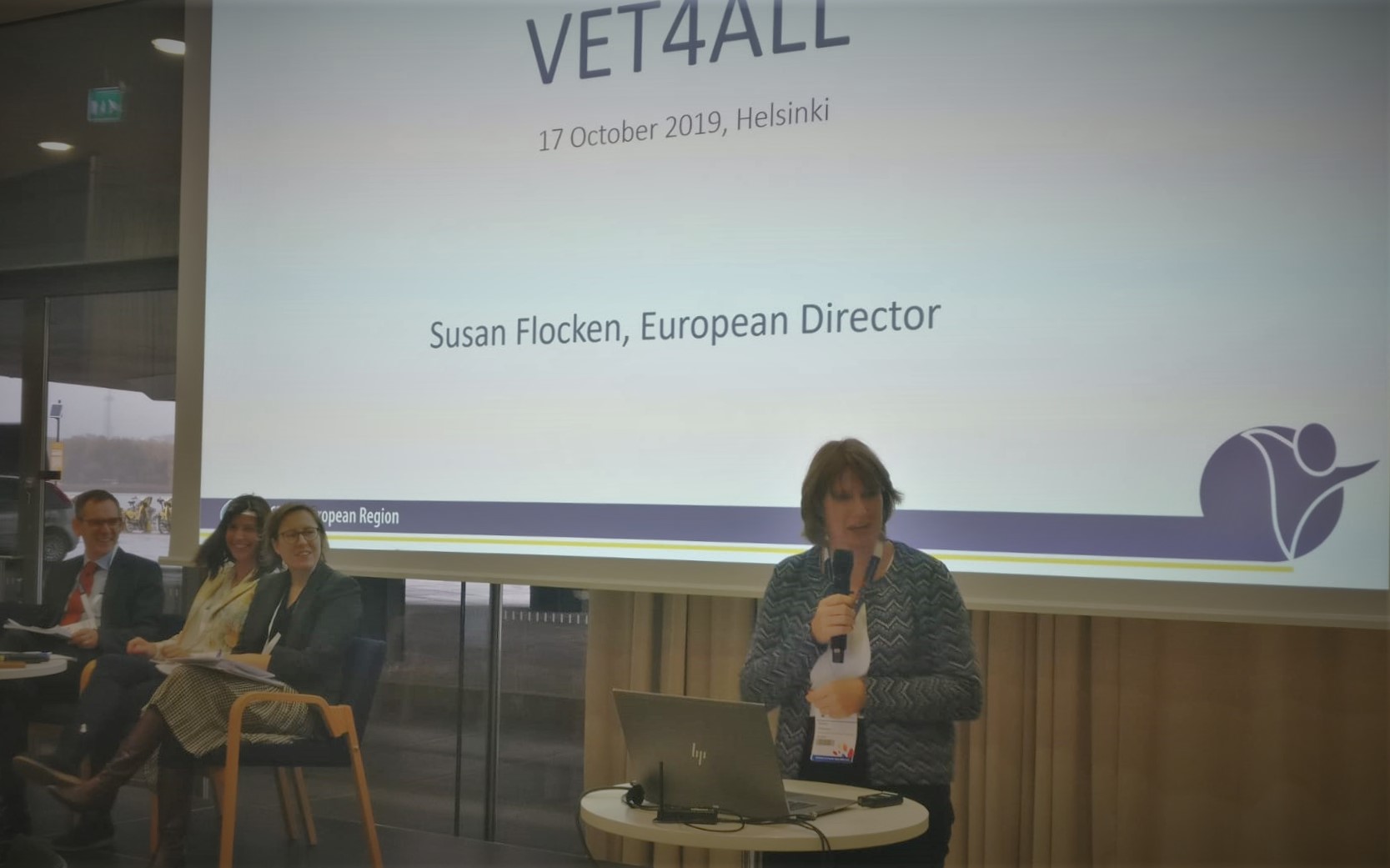The changing role of VET teachers and trainers: ETUCE represents education unions at the 4th European VET Skills Week
Published:
ETUCE was present throughout the European Vocational Education and Training Week, which took place on 14-18 October. This fourth edition of the VET Skills Week was organised in Helsinki jointly by the European Commission and the Finnish Presidency of the Council of the European Union. A particular highpoint was a seminar on the changing role of VET teachers and trainers, where our director Susan Flocken was a speaker.
At the seminar Susan underlined the importance of the European Pillar of Social Rights, which guarantees EU citizens the right to quality and inclusive education and training and equal opportunities. This does not only mean that all Europeans should have access to excellent VET throughout their lives, it also means that VET teachers and trainers must have the right to high quality and inclusive initial and continuous professional development.
She underlined that VET teachers face several challenges because of the lack of sustainable public investment in the sector, the low status of vocational education and the integration of migrants and refugees into vocational education. In addition, digitalisation and technical innovations create further demands on the VET sector. These issues all support ETUCE’s demand for quality initial and continuous professional development. What is more, the attractiveness of the VET teaching profession is a problem as pay and working conditions are not adequate.
Education trade unions are ready to support policymakers in improving the status and working conditions of VET teachers and trainers. For example, the European Sectoral Social Dialogue for Education focuses on developments in the VET sector and discusses how to improve recruitment and retention of VET workers teachers.
CEDEFOP, the EU agency for the development of vocational training, presented a study in the event about the training of apprentices and adults in small and medium sized enterprises. The study shows that around half of the in-company trainers in SMEs have some kind of certification to train.
The European Commission, also a speaker in the event, often looks into the role of VET teachers and trainers. For example, they brought together experts of governments and social partners to come up with a report and guidelines on professional development of teachers and trainers in companies. During VET Skills Week the Commission presented their new European Framework for the Digital Competence of Educators (DigCompEdu). This is directed towards teachers at all levels of education, from early childhood to higher and adult education, including general and vocational education and training, special needs education, and non-formal learning contexts.
The peak of the VET Skills Week was the ceremony wherein companies, schools, and project promoters were awarded for their good apprenticeship systems or actions on apprenticeship. Jozef Karaconji, a VET teacher nominated by the ETUCE member organisation Teachers Union of Serbia, was the second most voted nominee for this award category.
- Further information about the VET Skills Week events in Helsinki can be found here.